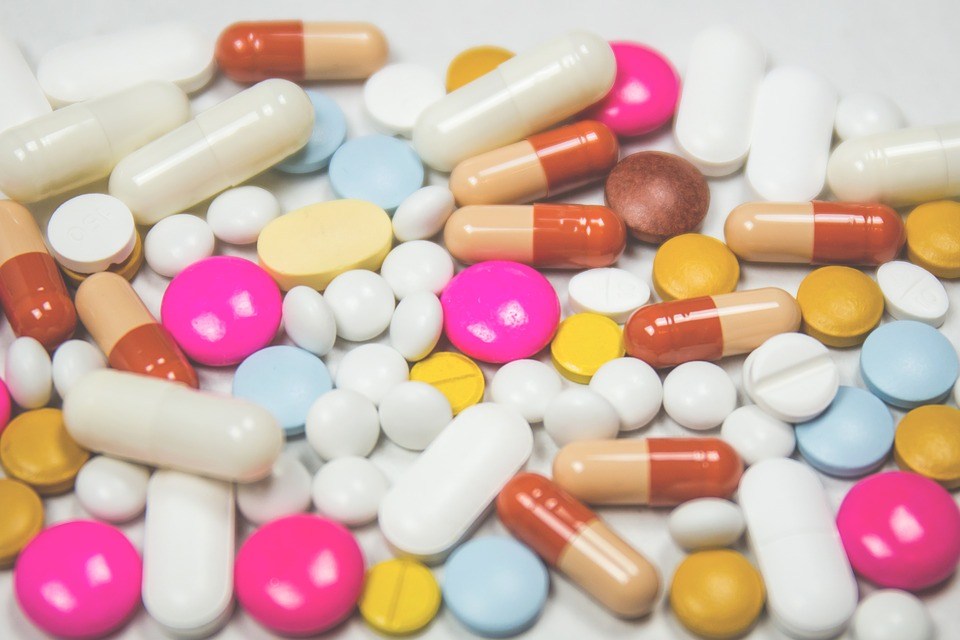According to a new study from analytics firm New Frontier Data, medical cannabis legalization could leave ‘Big Pharma’ with a serious bank deficit.
Researchers from the Washington, D.C.-based New Frontier Data found in their study, ‘From Prescription to Recommendation: How Cannabis Could Disrupt the Pharmaceutical Industry’, that if medical cannabis were legalized in all 50 states, it could result in a loss of between $4.4 billion to $4.9 billion in annual sales for the industry.
Looking at the purchases of the top nine conditions which cannabis is commonly used to treat – such as chronic pain, PTSD and epilepsy – the researchers concluded that income could drop an estimated $18.5 billion between 2016 and 2019. Their conclusions are based on a 2016 Health Affairs study that found an 11% reduction in drug prescriptions in states that had legalized medical marijuana.
“The United States constitutes 35 percent of the global pharmaceutical market, the largest market in the world, and a major driver of the U.S. economy,” said Giadha Aguirre De Carcer, CEO and founder of New Frontier Data. “It is one of many industries that will be impacted by the growth of the legal cannabis market and we are already starting to see that trend in legal medical states where use of key prescription drugs is down by 11 percent.”
Nine conditions that cannabis could treat
The study looked at nine of the conditions classified by the National Academies of Scienceas being most effectively treated by medical cannabis. They were:
- Chronic pain
- Post-traumatic stress disorder
- Sleep disorders
- Anxiety
- Nerve pain
- Chemotherapy-induced nausea and vomiting (CINV)
- Tourette’s syndrome
- Glaucoma
- Seizures/epilepsy
Based on the 2016 Health Affairs study, which found an 11% reduction in drug prescriptions sales in medical cannabis states, New Frontier Data analysts estimated what the total reduction would be if medical cannabis were fully legalized across the entire country. That decrease was then applied to the total amount of money spent in the U.S. on treatments for the aforementioned conditions. The results were a figure of between $4.4 billion to $4.9 billion per year which could be lost to the legal medical cannabis market.
“Looking at these numbers, it would appear that medical cannabis would be a drop in the bucket when it comes to impacting the total pharmaceutical industry. However, when you start to break down the numbers by specific sectors of the industry, like chronic pain or symptoms associated with chemotherapy, which are very lucrative markets for pharmaceutical companies, you will certainly see cannabis have a major impact,” said Aguirre De Carcer.
Implications
This would indeed be no small ‘drop in the bucket’ for a shaken pharmaceutical industry that relies on patented – and, therefore, not naturally-occurring – medicines. The implications of a non-toxic substitute for a huge number of side-effect-laden prescription drugs (one that can be grown at home, no less) are infinitely more far-reaching than the scope of this study.
There is no doubt that prescription drugs are a major health risk. They are a leading cause of death in the US and new prescription drugs even have a 1 in 5 chance of causing serious reactions after they have been approved. Many are also highly addictive and expensive – the price of prescription drugs is rising much faster than wages – so it is not hard to understand why many major pharmaceutical companies lobby so vehemently against medical cannabis.
This study only looked at nine conditions which cannabis is known to help with, yet the potential of the plant is far greater. So, as the FDA continues to insist that cannabis has no medical uses while it continues to unscrupulously push deadly prescription drugs on people in need, studies such as this are leading the fight for a rational public stance and, eventually, national legalization.
You can’t argue with the science for long, no matter how many billions you stand to lose.
CBDTesters is offering huge discounts right now on our lab tested, customer approved CBD softgels. Check out our CBD softgels deals.
[maxbutton id=”16″] [Image credit- Pixabay]









